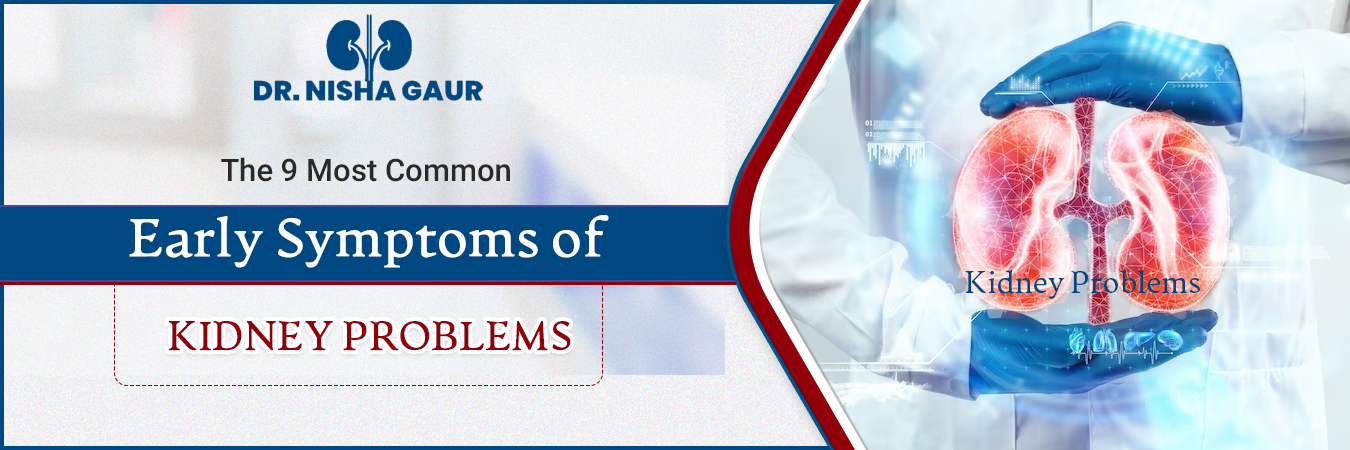Kidney Transplants: Symptoms, stages, Risks, Treatment
- What is a kidney transplant?
A short and simple answer to the question of “what is a kidney transplant” is that a kidney transplant is a surgical process involving implanting a healthy kidney, either from a living or deceased donor, into a person with renal disease that has progressed to its last stage. This is done to replace kidneys that do not function correctly or have suffered severe damage. The transplanted kidney takes over the critical functions of filtering waste products and excess blood fluids, restoring the recipient’s capacity to maintain correct body functioning and general health properly.
- Why is a kidney transplant Done?
A kidney transplant is typically performed as a treatment for end-stage kidney disease (ESKD), in which the kidneys have virtually completely lost their ability to achieve their normal functions. This can result from several causes, including kidney illness that has been present for a long time, diabetes, excessive blood pressure, or hereditary problems.
When kidney function falls below a certain threshold, life-sustaining processes such as regulating blood pressure, removing waste and excess fluids, and the balance of electrolytes become impaired. Even though dialysis can be helpful, it is typically only a short-term solution with drawbacks.
Transplanting a healthy kidney into a recipient can dramatically improve their quality of life. They make it possible to have more flexibility with one’s food, have higher energy levels, and require less dialysis therapy, which can be time-intensive. Individuals who have ESKD have a better chance of living longer, leading more normal lives, and participating in more activities if they can receive a successful transplant. Additionally, a successful transplant can reduce the risk of associated health issues.
- kidney transplant symptoms:-
- Pain or discomfort at the incision site associated with the surgery during the early post-transplant phase (the first few weeks).
- Swelling and discomfort in the region around the site of the transplant.
- The initial feeling of exhaustion and weakness.
- Alterations to the regularity of urine.
- There is a possibility of developing a fever or showing signs of infection.
- Gradual reduction in the discomfort associated with the surgical procedure during the longer-term post-transplant phase (months and beyond).
- Modification of immunosuppressant drugs as necessary.
- Keeping an eye out for any symptoms that could indicate organ rejection.
- The possibility of adverse reactions brought on by immunosuppressant medication.
- Routine medical examinations to evaluate kidney function as well as overall health.
- Risk of complications related to the operation, the medication, and overall health.
- There is a possibility that post-transplant well-being and energy levels will be higher than they were before the transplant.
- The ongoing administration of post-transplant treatment and immunosuppression to preserve kidney function.
For transplant recipients to have the best possible results, they need to keep an open line of communication with their healthcare team, report any unexpected symptoms promptly, take their prescribed medications and attend their follow-up appointments.
- kidney transplant Risks:-
- One of the risks associated with surgery is the possibility of bleeding during or after the procedure.
- Clots of blood forming in the lungs or the legs.
- An infection at the site of the surgery.
- Urine seepage or obstruction in the urinary tract (ureter).
- Acute rejection: This type of rejection occurs when the body’s immune system attacks the new kidney.
- Chronic rejection, often known as gradual kidney damage over time.
- Infections: As a result of having a compromised immune system.
- The negative consequences that immunosuppressant drugs can cause.
- Abnormally high amounts of cholesterol.
- Diabetes that is brought on by immunosuppressant medication.
- A disease that causes brittle bones (osteoporosis).
- kidney transplant stages:-
Pre-transplant evaluation includes a medical assessment to determine eligibility for the transplant. The process includes blood tests, tissue typing, and cross-matching.
- Psychosocial evaluation to determine whether or not the individual is mentally and emotionally prepared.
- Matching a living donor with a deceased donor or vice versa is part of the process of “Finding a Donor.”
- Testing for compatibility to ensure a good fit between the two.
- Donor kidney removal (in the case of a living donor) or kidney retrieval (in the case of a deceased donor) is part of the transplant surgery.
- Operation on the recipient to surgically insert the new kidney.
- Intensive care and monitoring immediately after surgery is required for post-transplant recovery.
- A required stay in the hospital for several days so that kidney function and healing can be monitored.
- Kidney transplant Treatment:-
There are several treatment that a patient undergoes after kidney transplant. A few of them are:
- Immunosuppressant Medication taken for the rest of one’s life to prevent rejection of an organ transplant.
- Periodic blood tests to fine-tune the dosage.
- Routine medical exams, blood tests, and imaging to check how well the kidneys work.
- The treatment of any possible issues or adverse effects that may occur.
- Ongoing assessment of both the kidneys’ functions and the patient’s general state of health.
- Addressing any concerns about the transplantation process or the medication being administered.
- Dietary modifications and exercise to achieve one’s highest level of health after a transplant.
- Support for Emotional and Mental Health, offered to both the beneficiaries and the donors of the service.
- If the original transplant fails, there is the opportunity for a second transplant to be performed.
- Each phase is critical to successfully transplanting a kidney, and continued care is necessary to ensure the recipient’s health and well-being.
Conclusion
Kidney Transplants is a serious illness if you keep ignoring the symptoms it even worsens with time if left untreated, so it is important to talk to the general health practitioner The more you delayed the more it became difficult to treat Kidney Transplants stages. If you are facing severe Most Kidney Transplants, then you should consult Dr. Nisha Gaur. Dr. Nisha Gaur is the most reputed Nephrologist doctor in Jaipur and has years of work experience and is the Best Nephrologist in Jaipur for Chronic Kidney Disease Care and also for treating ailments such as Kidney Transplantation, Peritoneal Dialysis, Hemodialysis, and Kidney Biopsy.


